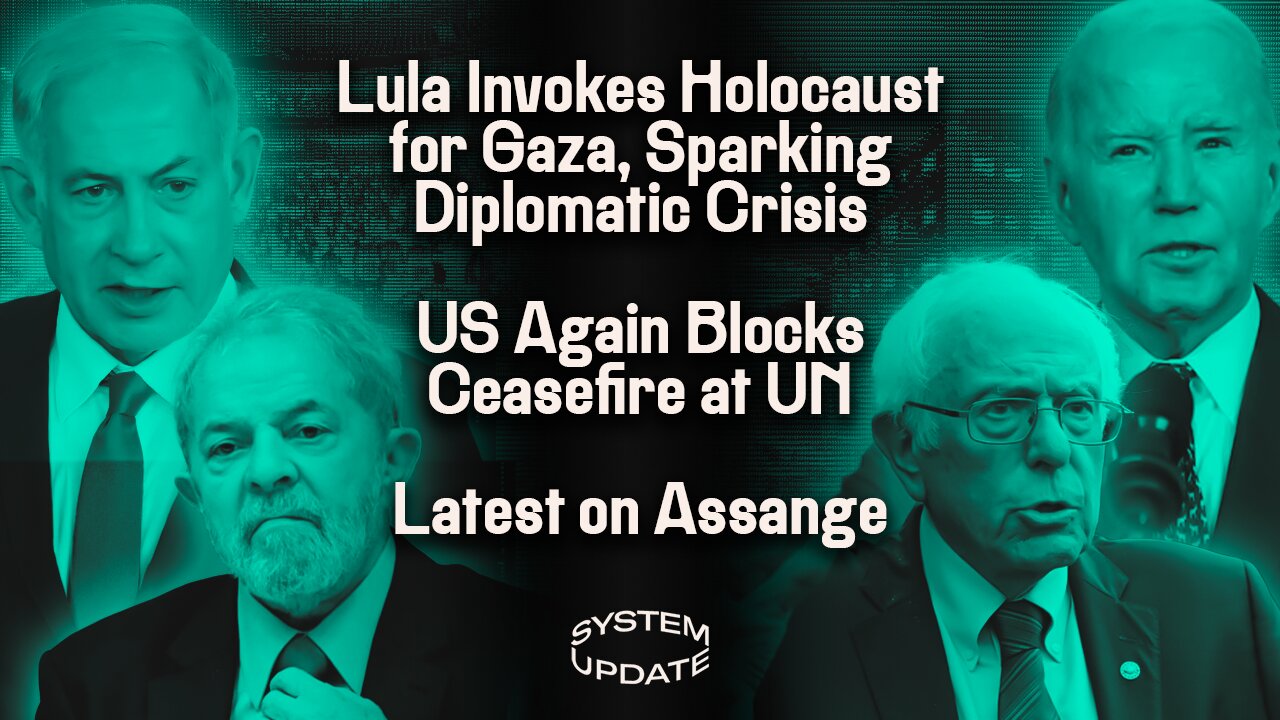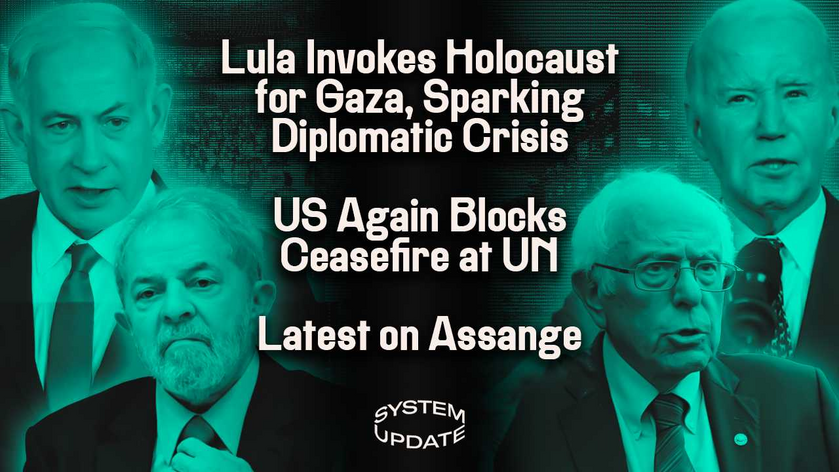Watch the full episode here:

Good evening. It's Tuesday, February 20.
Tonight: a major diplomatic crisis has erupted between Israel and Brazil, with the Israelis labeling Brazilian President Lula da Silva a “Holocaust denier,” declaring Lula persona non grata and banned from the country and requiring the Brazilian ambassador to meet Israeli officials in public at the Holocaust Museum. Meanwhile, Brazil has recalled its ambassador from Israel and made very clear that Lula has no intention to apologize in any way for the remarks he made that so enraged Israeli officials.
This conflict began when Lula, long a critic of Israel's treatment of the Palestinians, along with the U.N. for U.S. foreign policy and places such as Iraq and Ukraine, invoked the specter of the Holocaust when accusing Israel of committing genocide in Gaza. The Brazilian leader told reporters on a trip to Ethiopia that what is happening in the Gaza Strip with the Palestinian people has no parallel to other historical moments, adding, that “it did exist when Hitler decided to kill the Jews.” Lula's speech was filled with condemnations of Hamas on October 7. It was really a nuanced attempt to condemn the West, and especially the U.S., for keeping this war fueled, while doing little to nothing to provide basic humanitarian aid to prevent mass starvation among Gazans. But clearly, when one mentions the Holocaust in connection with Israel, fury and outrage will ensue and everything else will be forgotten. And that's exactly what happened in the wake of this controversy. All of this comes as the International Court of Justice continues to hold hearings on South Africa's formal accusation that Israel is guilty of war crimes.
So, beyond the now well-worn debates over the Israeli war in Gaza, now in its fifth very dark and destructive month, the serious diplomatic incident between Israel and the world's sixth most populous country gives rise to some really interesting and vital questions, such as who owns the memory of Nazism in World War II? Is there anyone with the legitimacy to dictate how the Holocaust can be discussed and by whom? What lessons can be derived from it, and with what political agenda it can be served? Given how often we hear various American enemies being acquainted with Hitler and Nazis—it happens all the time—are there specific countries now whose actions are immune for some reason from comparisons with the worst abuses of World War II? And if so, what is immunity based on? We'll examine these questions because of their relevance not only to the Brazil-Israel crisis or even the war in Gaza but also to the broader discourse on wars and foreign policy.
Then: the U.N. attempted for the third time to adopt a resolution calling for a ceasefire in Gaza. For the third time that resolution has the overwhelming support of almost every country on the planet. For the third time, the Biden administration has isolated the United States from the rest of the world to protect Israel and ensure that this war can continue. We will look at the Biden White House's ongoing defense of Israel. What progressive, DC leaders like Bernie Sanders and AOC are doing to assuage angry left-wing and younger voters who are vowing not to vote for Biden over his support for Israel, as well as the ongoing cost to the U.S. from this devotion to Israel at a time when most countries have turned against it.
Finally, as we reported at length on last night's program, today was the first day of Julian Assange's last attempt in a British court to avoid extradition to the U.S., where the Biden DOJ intends to put him on trial for espionage charges and where he faces the rest of his life in an American prison. We will tell you the latest about what happened today inside the London courtroom, in what is Assange's last chance to convince the British judiciary not to extradite him to the United States.
For now, welcome to a new episode of System Update, starting right now.






















